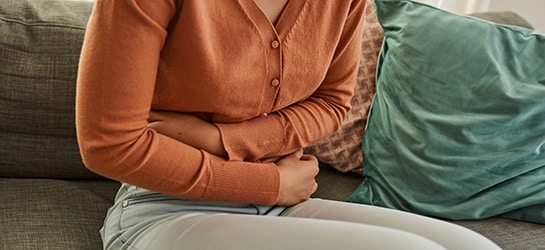Kidney Stones


Your Painful (But Treatable) Kidney Stone
When kidney stones form, they block the passage in the urinary tract and can be extremely painful. We invest in the most advanced, immediate care.
Overview
What are Kidney Stones?
Kidney stones form when composites of minerals, typically excreted from the kidney, crystallize and bind together. They can either deposit and stay in the kidney or pass into the ureter (the tube connecting the kidney to the bladder) and cause urinary obstruction, pain, or infection. Approximately 1 in 10 people will develop kidney stones at some point in their life.
Symptoms
What are the symptoms of Kidney Stones?
You may experience the following symptoms:
- Blood in the urine
- Fevers
- Nausea/vomiting
- Pain (typically up and down pain in the side of the back or abdomen)
- Worsening urinary symptoms (frequency, urgency, burning with urination)
Cause
What causes Kidney Stones?
Several factors may increase your risk of stones including higher calcium or oxalate in the urine, recurrent urinary tract infections, uric acid in the urine (often related to a high protein intake) or family history of kidney stones. Dehydration and certain dietary choices may also play a role.
Diagnosis
How are Kidney Stones diagnosed?
What to know before your visit to MidLantic Urology in Philadelphia and surrounding counties:
- During your visit, your doctor will ask you questions regarding your medical history, surgical history and dietary choices.
Tests that may be performed during or after your visit:
- Urinalysis: This evaluates for any blood in the urine or infection
- Blood tests: This will help identify potential metabolic abnormalities that contribute to stone formation
- Urine studies: A 24-hour urine test (i.e. Litholink) involves urinating in a small container for 24 hours to identify minerals and electrolytes in your urine that may increase your risk of future stones or identify a potential metabolic reason for stone formation
- Imaging: An ultrasound of the kidneys, x-ray of the kidneys, or low-dose CT scan (without contrast) may be utilized to diagnose or follow kidney stones
Treatment
How are Kidney Stones treated?
NON-SURGICAL TREATMENT
- Trial of passage: This is useful for patients with sufficient pain control, adequate kidney function, no fevers/chills, and for stones less than 1 cm in size. The size and location of the stone significantly impacts success rates of passage (please review with your provider). Note: it may take up to 4-6 weeks for a stone to pass.
- Tamsulosin (Flomax) may be used to assist in stone passage
- Ibuprofen may be used for pain control and to assist in stone passage
There are a few ways to decrease stone formation, they include:
- Adjusting beverage choices:
- Fluid intake is extremely important with goal urine output of 2.5 liters/day.
- Crystal Light® may be useful to increase citrate levels in the urine, a protective mineral that decreases stone risk.
- Avoid dark soft drinks (i.e. colas, root beer).
- Data on lemonade and orange juice is inconclusive.
- Dietary changes:
- The best diet for most stone formers is the DASH diet – high in fruits/vegetables, low in sodium (less than 2300mg/day) and low in animal protein (less than 1g of protein per kg of body weight per day).
- Maintaining a moderate amount of dietary calcium intake is important (2-3 servings/day – 1000-1200mg/day).
- If on a calcium supplement, take at the time of meals to decrease stone formation risk
- Men and pre-menopausal women: 1000mg/day
- Men over 70 and post-menopausal women: 1200mg/day
- If on Vitamin D supplementation, it’s okay to continue as long your calcium level is normal in your 24-hour urine test (please discuss with your provider).
- Consider a lower oxalate diet by decreasing spinach, beets, leafy vegetables, chocolate, peanuts, tea, and soybeans from your diet.
SURGICAL TREATMENT
- ESWL (Shockwave Lithotripsy): A non-invasive treatment that breaks up stones through sound waves on the outside of the skin. Watch this short video about lithotripsy.
- Ureteroscopy: A minimally invasive procedure in which a scope is inserted into the bladder and ureter and the stone is lasered (typically) and the fragments are removed.
- PCNL (Percutaneous stone removal): Involves a small incision in the back and the insertion of a scope directly into the kidney with fragmentation and stone removal. This is utilized for stones larger than 2 cm typically.
What is a ureteral stent? A small tube that is inserted into the ureter during your procedure that allows urine to bypass an obstructing stone or allows the ureter to heal after ureteroscopy.
Prevention
How do you prevent Kidney Stones?
While some people are more susceptible to kidney stones than others, there are several actions you can take to decrease your chances of developing kidney stones.
- Stay hydrated: Drink plenty of water (not colas or alcoholic beverages), especially when engaging in exercise or activities that cause a lot of sweating.
- Reduce sodium: A high-sodium diet can trigger kidney stones because it increases the amount of calcium in your urine.
- Get the calcium you need: Getting too little calcium in your diet can cause oxalate levels to rise and cause kidney stones. To prevent this, make sure to take in an amount of calcium appropriate to your age.
- Avoid eating too many stone-forming foods: Chocolate, beets, spinach, rhubarb, tea, and many nuts are rich in oxalate, and soda is rich in phosphate, both of which can contribute to kidney stones. Don’t avoid those healthy foods like spinach and beets, but just balance your diet with other foods and drink plenty of water.
- Limit animal protein: Eating too much red meat, poultry, eggs, and seafood can boost the level of uric acid and could lead to kidney stones.

